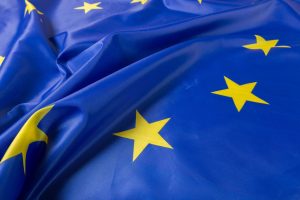 The 9th of May is celebrated across the European Union (EU) as “Europe Day” – a day to celebrate European unity, peace and the coming together of former enemies to form what is today the largest Single Market in the world, and a unique political system, with its own directly elected Parliament, a common currency and deep-rooted integration and interconnections between its members.
The 9th of May is celebrated across the European Union (EU) as “Europe Day” – a day to celebrate European unity, peace and the coming together of former enemies to form what is today the largest Single Market in the world, and a unique political system, with its own directly elected Parliament, a common currency and deep-rooted integration and interconnections between its members.
The day has a special meaning in European history – on the 9th of May 1945 the Second World War ended in Europe, Nazi-Germany agreed to an unconditional surrender only one day earlier. Only five years later, on the 9th of May 1950, the Schuman Declaration would become what many consider “the birth certificate” of today’s European Union. Robert Schuman, at the time French Foreign Minister, outlined a plan to pool the coal and steel resources of France and Germany, and create a new High Authority that would oversee them. This, so Schuman, “should immediately provide for the setting up of common foundations for economic development as a first step in the federation of Europe, and will change the destinies of those regions which have long been devoted to the manufacture of munitions of war, of which they have been the most constant victims.”
The Schuman Declaration was the brainchild of Jean Monnet, a French technocrat who himself witnessed the horrors of war and recognized that mending the German-French relation was key to peace in (Western) Europe. By changing perspective, and looking at German-French relations not as a bilateral issue, but as a European issue, Monnet would become the architect of the European Coal and Steel Community (1952) and later the European Economic Community (EEC). Schuman and Monnet were very clear in their speeches and writings that this European project was about much more than economic integration. They promoted a process of functional integration, where economic benefits would justify further pooling of sovereignty to ultimate build a new Union – a European Union that would unite a continent ripped apart by war, the Holocaust and the ideological divisions of the new East-West confrontation. It would take more than 50 years before this continent ultimately came together, and many argue that without integrating the countries of the Western Balkans (Bosnia and Herzegovina, Serbia, North Macedonia, Kosovo, Montenegro and Albania), European unification will remain incomplete (not to mention the European ambitions of Ukraine and Georgia).
The EU as we know it today is of course not perfect. It remains an elite project, which has struggled to get popular support. Its focus on economic integration has meant that a common vision of a European social model is yet to emerge, let alone be implemented. The EU’s dealings with the ongoing refugee crisis in the Mediterranean, its partnership with dubious regimes in North Africa and Turkey, and its inability to offer a clear and coherent alternative to the rise of authoritarianism in Eastern Europe and the Balkans have all stained the image of the Union as a liberal peace project.
Yet, the EU is the best we have today. It is not perfect, not many well-intended political projects are. But it has protected peace in Western Europe for the last 70 years. It has brought Germany and France together, and allowed a divided and war-torn continent to come together. Dag Hammarskjöld once said about the United Nations (UN), ““Everything will be all right – you know when? When people, just people, stop thinking of the United Nations as a weird Picasso abstraction and see it as a drawing they made themselves.” The EU in many respects is the same. As European peoples prepare to vote for its Parliament in May 2019 and elites consider how to deal with the challenges of populism, climate change and Brexit (to name but a few), it remains important to keep in mind that the EU is an ever-evolving project. As Brexit-Britain is considering its own future (in or out, special relationship with the EU or complete no-Deal break), it is important to keep in mind that 69 years after the Schuman Declaration, the EU remains a guarantee of peace in Europe. It remains a bulwark against populism and racism, a promoter of gender equality and minority rights. Yes, it could do much better in all of these areas. But what would our continent look like without the EU?
Dr Soeren Keil is Reader in Politics and International Relations and Director of the Centre for European studies (CEFEUS) at Canterbury Christ Church University.
 Politics
Politics LVM
LVM 1217
1217

